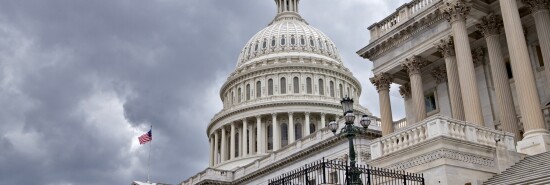
When did Congress tell the government to target online speech?
Hudson Crozier
Video Embed
The Biden administration is appealing a court ruling that blocks several federal agencies and employees from involving themselves in social media censorship. As the Missouri v. Biden case threatens this crusade against online speech on First Amendment grounds, the government is giving a dubious legal justification for it.
“Our consistent view remains that social media platforms have a critical responsibility to take account of the effects their platforms are having on the American people, but make independent choices about the information they present,” the Justice Department and White House said in identical statements. The administration says it is not directly responsible for the choice to censor, a narrative it has held on to for months.
A VICTORY FOR FREE SPEECH IN A LOUISIANA COURTROOM
But the issue runs deeper. While the government struggles to explain how the Constitution gives it permission to do this, it has never explained how federal law does.
In theory, the executive branch is supposed to carry out laws written by Congress. Every function or task an agency performs must be authorized somewhere in our statutes. Suddenly, agencies with different purposes all took it upon themselves to go after “misinformation” and “disinformation” on platforms that didn’t exist until just recently. When did lawmakers say this was part of the FBI’s job to enforce criminal and civil law, the State Department’s job to carry out diplomacy, or the HHS’s job to improve public health? The censors do not feel the need to tell us, apparently.
Some agencies, however, have resorted to leaps of logic or falsehoods. The FBI, for example, made Twitter and Facebook believe the Hunter Biden laptop story was Russian disinformation. Sworn testimony indicates that agents knew this was a lie, but calling it a foreign threat made it look more like a problem the bureau is actually tasked with solving.
When Congress created the DHS’s cybersecurity agency in 2018, it authorized working with “private sector entities” to address threats. The DHS quickly abused this by classifying online narratives on “racial justice” and other political topics as part of the “infrastructure” it protects. In the most Orwellian language imaginable, the DHS labeled our very thoughts “cognitive infrastructure” that it must control by fighting “mis-, dis-, and malinformation.” The bill that created the agency, which came in response to Russian hacking operations, does not even mention such things.
CLICK HERE TO READ MORE FROM THE WASHINGTON EXAMINER
Representative government is not supposed to work this way. Unelected bureaucrats do not have automatic permission to do anything on which the law is silent. There could be Democratic lawmakers who approve of them collaborating with social media companies in this way, but that is entirely different from holding a vote on it. Republicans are right to introduce legislation banning this activity, but if the public truly held the reins, they wouldn’t need to.
Hudson Crozier is a summer 2023 Washington Examiner fellow.
